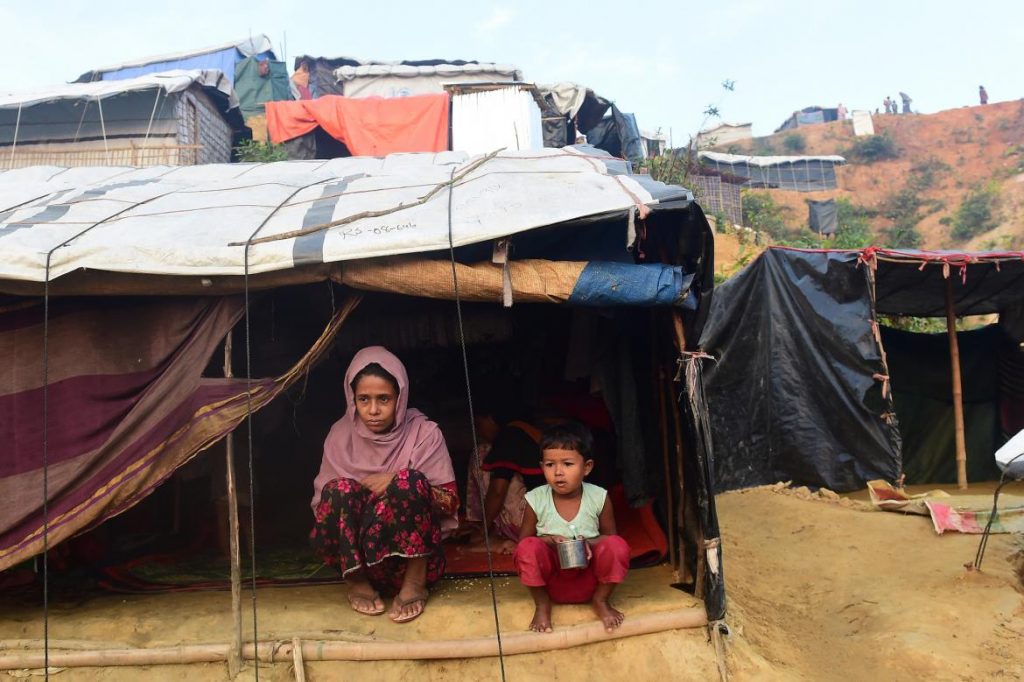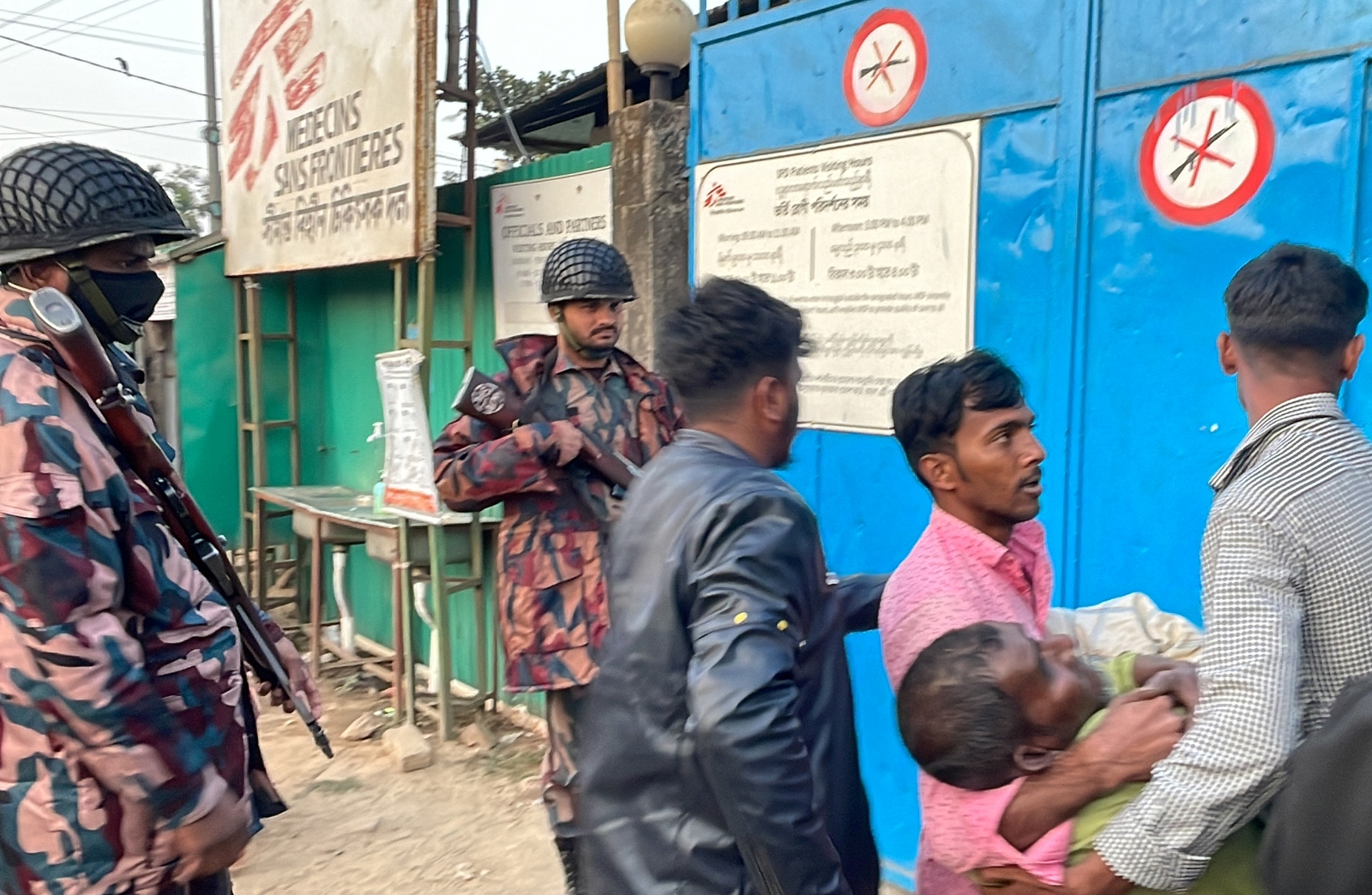By AFP
YANGON — Bangladesh and Myanmar will start repatriating refugees in two months, Dhaka said Thursday, as global pressure mounts over a crisis that has forced more than half a million Rohingya to flee across the border.
The United Nations says 620,000 Rohingya have arrived in Bangladesh since August and now live in squalour in the world’s largest refugee camp after a military crackdown in Myanmar that Washington said this week clearly constitutes “ethnic cleansing”.
After months of wrangling, State Counsellor Daw Aung San Suu Kyi and Dhaka’s Foreign Minister Mr A.H. Mahmood Ali inked a deal in Nay Pyi Taw on Thursday.
Dhaka said they had agreed to start returning the refugees to Myanmar in two months.
Support more independent journalism like this. Sign up to be a Frontier member.
It said that a working group would be set up within three weeks to agree to the arrangements for the repatriation.
“This is a primary step. (They) will take back (Rohingya). Now we have to start working,” Ali told reporters in Nay Pyi Taw.
Impoverished and overcrowded Bangladesh has won international praise for allowing the refugees into the country, but has imposed restrictions on their movements and said it does not want them to stay.
Myanmar, meanwhile, has bristled at the growing chorus of global criticism.
Daw Aung San Suu Kyi, a one-time heroine of the human rights movement whose halo has been badly tarnished, shot back Thursday at foreign interference in what she said was a “bilateral” issue.
“Western countries as well the Organisation of Islamic Cooperation (OIC) had portrayed the matter as an international issue by passing resolutions at the UN Human Rights Council and the General Assembly of the United Nations,” her office said in a statement.
“The principled position of Myanmar is that issues that emerge between neighbouring countries must be resolved amicably through bilateral negotiations.”
Thursday’s agreement is a “win-win situation for both countries”, the statement added.
‘Horrendous atrocities’
The tentative deal comes the day after US Secretary of State Mr Rex Tillerson, who met with Aung San Suu Kyi in Myanmar last week, issued Washington’s strongest-yet denunciation.
“It is clear that the situation in northern Rakhine state constitutes ethnic cleansing against the Rohingya,” Tillerson said.
“No provocation can justify the horrendous atrocities that have ensued.”
The tide of desperate humanity that has poured over the riverine border into Bangladesh is thick with horrifying stories of rape, murder and arson at the hands of Myanmar’s military and Buddhist mobs.
The Myanmar army insists its crackdown has been proportionate and targeted only at Rohingya rebels.
Thursday’s outline deal offered no detail on how many Rohingya will be allowed back and how long the process will take.
The European Union’s top diplomat, Ms Federica Mogherini, said it was “an important and welcomed step towards addressing one of the worst humanitarian and human rights crises of our times”.
Mogherini, who visited Myanmar on Monday, urged both nations to act swiftly to enable the “voluntary, safe and dignified return” of the refugees, in a statement.
Rights groups have raised concerns about the repatriation plans, including questioning where the minority will be resettled after hundreds of their villages were razed, and how their safety will be ensured in a country where anti-Muslim sentiment is surging.
‘Won’t go back’
The stateless Rohingya have been the target of communal violence and vicious anti-Muslim sentiment in mainly Buddhist Myanmar for years.
Tensions erupted into bouts of bloodshed in 2012 that pushed more than 100,000 people into grim displacement camps.
Despite the squalid conditions in the overcrowded camps in Bangladesh, many of the refugees say they are reluctant to return to Myanmar unless they are granted full citizenship.
“We won’t go back to Myanmar unless all Rohingya are granted citizenship with full rights like any other Myanmar nationals,” said Abdur Rahim, 52, who was a teacher at a government-run school in Buthidaung before fleeing across the border.
“We won’t return to any refugee camps in Rakhine,” he told AFP in Bangladesh.
The signing of the deal came ahead of a highly-anticipated visit to both nations from Pope Francis, who has been outspoken about his sympathy for the plight of the Rohingya.
The latest unrest occurred after Rohingya militants attacked police posts on August 25.
The army backlash rained violence across northern Rakhine, with refugees recounting nightmarish scenes of soldiers and Buddhist mobs slaughtering villagers and burning down entire communities.
The military denies all allegations but has restricted access to the conflict zone.
Myanmar’s government has blocked visas for a UN-fact finding mission tasked with probing accusations of military abuse.







